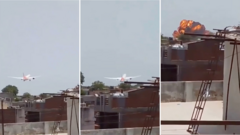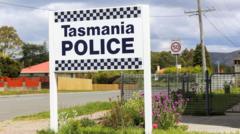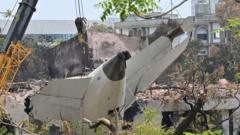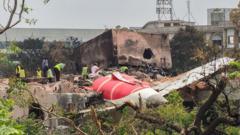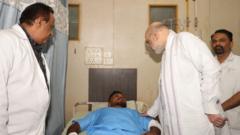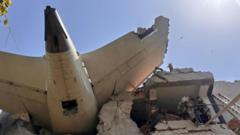In a significant move, President Cyril Ramaphosa has initiated a judicial inquiry into political interference regarding the prosecution of apartheid-era crimes, responding to lawsuits from victims’ families demanding accountability after decades of impunity.
South Africa Launches Inquiry into Apartheid Crimes After Years of Silence
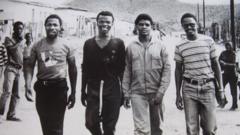
South Africa Launches Inquiry into Apartheid Crimes After Years of Silence
A judicial inquiry into past apartheid-era prosecutions has been announced by President Cyril Ramaphosa, addressing long-standing concerns about justice for victims.
South Africa's President Cyril Ramaphosa has taken a major step towards truth and justice by announcing a judicial inquiry focused on allegations of political interference in the prosecution of crimes committed during the apartheid era. This announcement comes three decades after the fall of apartheid and follows a lawsuit filed by a group of survivors and relatives of victims seeking redress for the lack of justice they have faced.
Historically, the Truth and Reconciliation Commission (TRC), established in 1996, unveiled numerous abuses such as murder and torture associated with the apartheid regime; however, the progression of these cases to court has been minimal. In a presidential statement, Ramaphosa emphasized his determination to uncover the truth and see this matter resolved.
The inquiry's inception is part of a resolution effort in a high-profile court case involving 25 affected families, who are suing the government for $9 million (£6.8 million) on the grounds that past administrations have failed to adequately address crimes of apartheid. Among the plaintiffs is the son of Fort Calata, who, along with several other anti-apartheid activists known as the Cradock Four, was murdered by police forces in 1985. Although six former police officers confessed their involvement to the TRC, they have never faced prosecution as their confessions did not grant them amnesty.
Critics have long accused the leadership of the African National Congress (ANC) of reaching a covert agreement with the former apartheid administration, effectively halting prosecutions — a claim the ANC has consistently denied. On Wednesday, the presidency acknowledged that allegations of improper influences hindering investigations have persisted over multiple administrations.
The inquiry's head and timeline will be announced in the coming weeks, marking a pivotal moment for South Africa as it confronts its apartheid past and the quest for justice remains alive.

